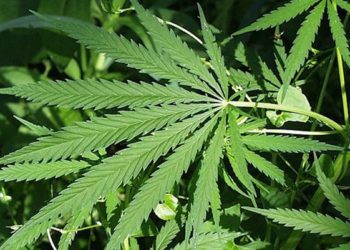High levels of stress decreased amongst Korean youth during the COVID-19 pandemic
1. Subjective stress, sadness and despair were lower in a 2020 cohort of representative Korean youth compared to the 2019 cohort.
2. Suicide-related behaviours, including suicidal thoughts, suicide plans and attempts also decreased in the 2020 cohort compared to the 2019 cohort.
Evidence Rating Level: 3 (Average)
Study Rundown: The COVID-19 pandemic has undeniably had a significant impact on the mental and physical health of people of all ages, around the world. Studies of North American participants have demonstrated that stress and suicidality amongst the general population have increased since the start of the pandemic, although this association varies across socioeconomic groups. It is possible that other cultural factors, including country of origin, may influence the effect of the pandemic on population mental health. The present study sought to evaluate the psychological impact of COVID-19 amongst Korean youth. Data from the Korea Youth Risk Behavior Web-based Survey (KYRBWS) were used to assess markers of mental health and suicidality in 2019 and 2020 amongst a representative sample of Korean youth. 92,659 youth aged 12-18 were included in this study over a two-year time period (48,443 in the 2019 survey and 44,216 in 2020). Levels of severe and very severe stress were significantly higher in 2019 than 2020, as were serious sadness/despair and suicidality. Mean number of days doing physical activity and mean sleep time were lower in 2020 than 2019. Finally, body mass index was higher in 2020 than 2019. Scholastic performance and self-assessed health status were not significantly different between cohorts. These parameters demonstrated that the odds of experiencing severe stress and poor mental health (i.e., suicidality) decreased following the start of the COVID-19 pandemic amongst Korean Youth. Strengths of the study include the large sample size & use of a nationally representative cohort. This work is also novel and plainly illustrates how culture can be a modifier of health. Finally, reduced stress and suicidality amongst Korean youth may indicate markers of success in Korea’s approach to COVID-19 and schooling from which other governments can learn. Limitations of this study include low external validity – the study’s findings are quite limited to the cultural context from whence they are derived. The use of self-reported data is another limitation, as outcomes such as ‘subjective stress’ are difficult to quantify and standardize across participants.
Click to read this study in JAMA Network Open
Relevant reading: Change in youth mental health during the Covid-19 pandemic in a majority Hispanic/Latinx US sample
In-Depth [cross-sectional study]: The KYRBWS is a national study of Korean youth distributed through the school system, known to have high participation rates up to 99% in some regions. Exclusion criteria included the following variables: poor data availability, height or weight, time spent sedentary and sleep time. Outcomes included: subjective stress, significant sadness/despair and thoughts, plans and attempts at suicide within the past 12 months. Body mass index, days of physical activity, time spent sedentary, sleep time, socioeconomic status, parental education, scholastic performance and self-rated health status were considered covariates in the analysis model. The prevalence of high stress levels were reported as follows: 28.3% (2019) vs 25.7% (2020) for severe stress and 11.1% (2019) vs 7.5% (2020) for very severe stress. 27.5% of 2019 participants and 23.9% of 2020 participants reported feelings of sadness or despair. The prevalence rates in 2019 vs 2020 for suicidality within the past 12 months were as follows: suicidal thoughts (12.6% vs. 10.1%), suicide planning (3.5% vs. 3.1%) and suicide attempts (2.6% vs. 1.7%). Mean days of exercise were higher amongst the 2019 cohort (1.9 vs. 2.0 days per week) and mean sedentary leisure time was shorter (6.0 versus 6.6 hours per day). The odds ratios (OR) for reporting severe or very severe stress in 2020 versus 2019 were 0.95 (95% confidence interval [CI] 0.87-1.04, severe stress) and 0.71 (95% CI 0.65-0.78, very severe stress). The OR for sadness/despair was 0.83 (0.80-0.86), 0.78 (0.74-0.82) for suicidal thoughts, 0.89 (0.82-0.96) for suicide plan and 0.65 (0.59-0.71) for suicide attempts in 2020 compared to 2019.
Image: PD
©2021 2 Minute Medicine, Inc. All rights reserved. No works may be reproduced without expressed written consent from 2 Minute Medicine, Inc. Inquire about licensing here. No article should be construed as medical advice and is not intended as such by the authors or by 2 Minute Medicine, Inc.








